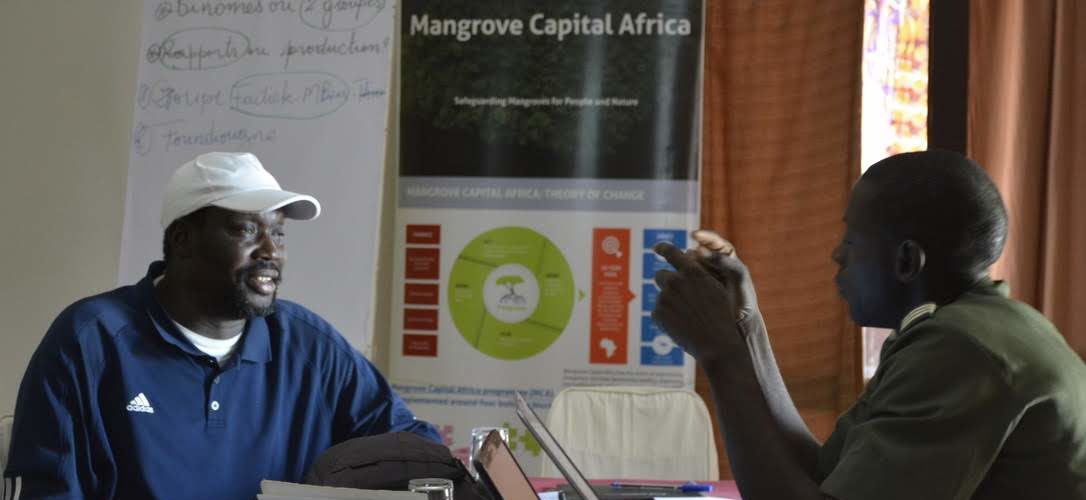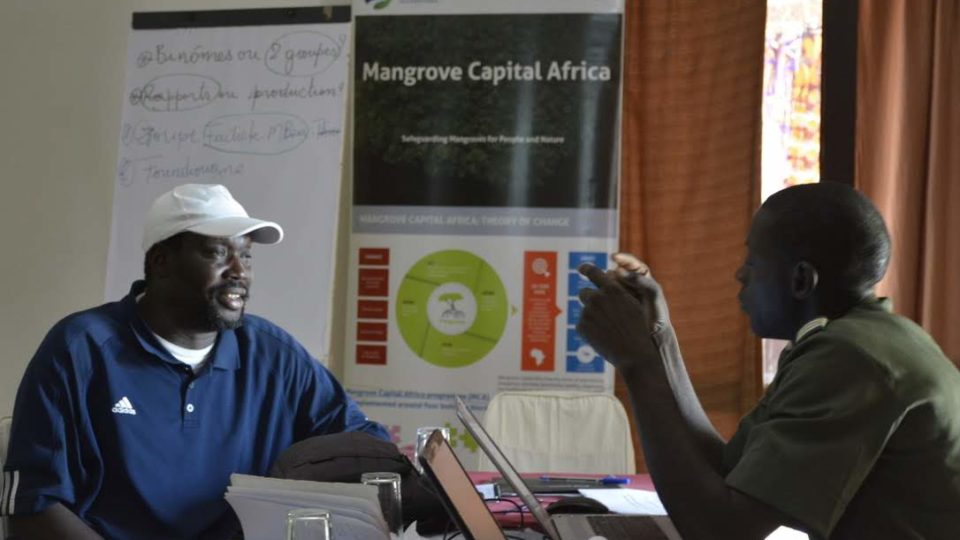Communication has been crucial in the implementation of the Mangrove conservation and restoration local plans, as part of Mangrove Capital Africa (MCA) program in Saloum, announced the participants of the self-assessment workshop, meeting in Ndangane on 08 and 09 July 2019.
From July 2018 to May 2019, 64 radio programs were planned and 58 were realized, representing an implementation rate of nearly 91%.
During two days, community radio representatives and mangrove restoration micro-project focal points discussed the results of the implementation of the communication and social mobilization plan to learn from this common experience. They reviewed the activities carried out, the synergies developed, the results and behavior change induced and the lessons learned before making recommendations for the second phase of the programme.
It appears from this self-assessment that some changes in behavior are already perceptible in communities:
– Increased sensitivity of populations to mangrove threats;
– Community enthusiasm for mangrove themes as demonstrated by the audience of interactive radio programs;
– A sense of public pride about the existence of mangrove forests as a “natural heritage”;
– A better perception of the economic, social, cultural values of mangrove by the populations;
Nevertheless, some challenges are worth mentioning. They are mainly related to the mobilization of resource persons for the animation of radio broadcasts, the coordination between the activities of microprojects and radios should be increase. In addition, some radio presenters have limited knowledge of aspects related to mangrove ecosystems, which would warrant capacity building in the next steps.
Mangrove Capital Africa is led by Wetlands International and funded by DOB Ecology

